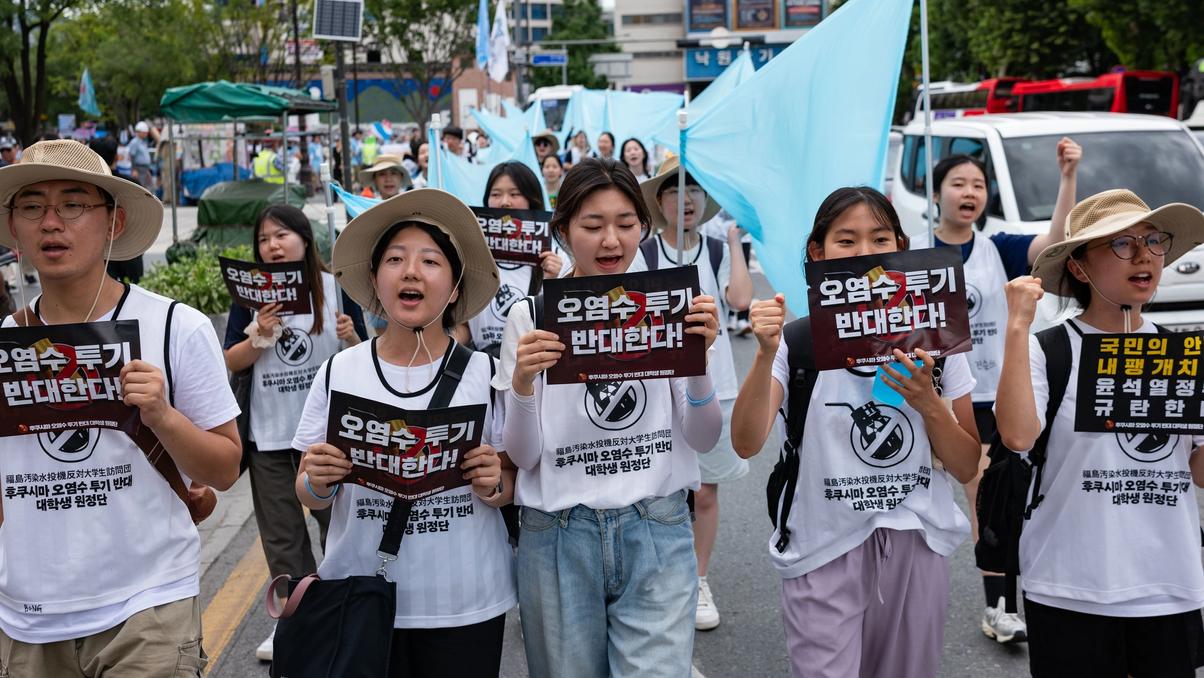Japan Under Fire For Releasing Treated Radioactive Water Into The Ocean
Officials promise it's safe, but lots of people around the world have concerns. Shutterstock
Shutterstock
News that is entertaining to read
Subscribe for free to get more stories like this directly to your inboxAlthough officials in Japan insist that it’s safe, plenty of critics are up in arms over the decision to release wastewater from the Fukushima Daiichi nuclear power plant into the Pacific Ocean this week.
A timeline of events
In 2011, an earthquake and tsunami hit Japan and inflicted significant damage to the nuclear plant. After a meltdown of three reactors, radioactive water began to leak into the ground.
Although Tepco, which operates the plant, has attempted to reduce the amount of clean water exposed to the contaminants, it has been building up over time and is near capacity.
The energy company as well as the Japanese government say it’s vital to get rid of the treated wastewater now in order to decommission the plant and reduce the potential for a future leak.
Prime Minister Fumio Kishida spoke to the public over the weekend and promised that the process used to treat the water made it safe to dump into the ocean — but not everyone is convinced.
A controversial process
While the International Atomic Energy Agency has approved Japan’s commitment to safety, there’s still plenty of uncertainty about the process being used to treat the water.
As of the latest updates available, roughly 70% of the water in the plant’s tanks contains too many contaminants to be deemed safe. But officials say the advanced liquid processing system employed to treat the water will keep working until it is below the threshold set by international regulators.
Of course, that’s clearly not a commitment that the water being released will be completely clear of radioactive materials. And some skeptics wonder if officials will actually be able to pull off the feat.
On the positive side, Rafael Grossi of the IAEA said he’s confident in Japan’s efforts after a recent visit to the plant.
 Why Is The Aging Voyager 1 Probe Sending Back Incoherent Communications?
It's been speaking gibberish for a few months and officials are concerned.
Why Is The Aging Voyager 1 Probe Sending Back Incoherent Communications?
It's been speaking gibberish for a few months and officials are concerned. One Woman’s Massive Donation Is Wiping Out Tuition At This Medical School
Her inheritance came with the instruction to do "whatever you think is right."
One Woman’s Massive Donation Is Wiping Out Tuition At This Medical School
Her inheritance came with the instruction to do "whatever you think is right." Woman’s Pets Will Inherit Her Multimillion-Dollar Fortune, Not Her Kids
It's not the first time four-legged heirs were named in a will.
Woman’s Pets Will Inherit Her Multimillion-Dollar Fortune, Not Her Kids
It's not the first time four-legged heirs were named in a will.